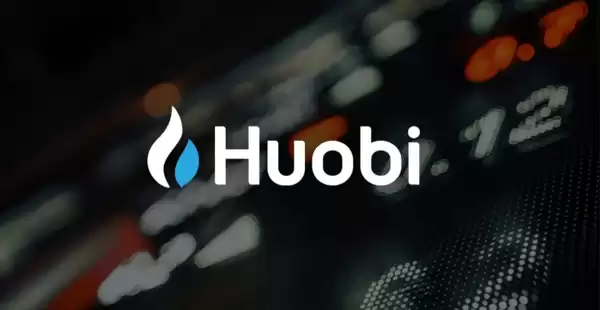-
 bitcoin
bitcoin $87959.907984 USD
1.34% -
 ethereum
ethereum $2920.497338 USD
3.04% -
 tether
tether $0.999775 USD
0.00% -
 xrp
xrp $2.237324 USD
8.12% -
 bnb
bnb $860.243768 USD
0.90% -
 solana
solana $138.089498 USD
5.43% -
 usd-coin
usd-coin $0.999807 USD
0.01% -
 tron
tron $0.272801 USD
-1.53% -
 dogecoin
dogecoin $0.150904 USD
2.96% -
 cardano
cardano $0.421635 USD
1.97% -
 hyperliquid
hyperliquid $32.152445 USD
2.23% -
 bitcoin-cash
bitcoin-cash $533.301069 USD
-1.94% -
 chainlink
chainlink $12.953417 USD
2.68% -
 unus-sed-leo
unus-sed-leo $9.535951 USD
0.73% -
 zcash
zcash $521.483386 USD
-2.87%
Huobi contract trading Explanation
To trade crypto futures contracts with leverage on a user-friendly platform, consider Huobi Contract Trading, which offers perpetual, quarterly, and options contracts across various crypto assets.
Nov 11, 2024 at 12:05 am

Huobi Contract Trading is a platform for trading futures contracts on crypto assets. It offers a wide range of contract types, including perpetual contracts, quarterly contracts, and options. The platform is designed to be user-friendly and offers a variety of features to help traders make informed decisions.
Steps Involved in Huobi Contract Trading- Open a Huobi Account
- Visit the Huobi website and create an account.
- Verify your identity by providing personal information and identification documents.
- Fund Your Account
- Deposit funds into your Huobi account by wire transfer, credit card, or cryptocurrency.
- Note that different payment methods may have different fees and processing times.
- Choose a Contract Type
- Huobi Contract Trading offers a variety of contract types, including perpetual contracts, quarterly contracts, and options.
- Perpetual contracts are futures contracts that do not expire.
- Quarterly contracts are futures contracts that expire on a quarterly basis.
- Options are contracts that give the buyer the right to buy or sell an asset at a specified price within a specified time frame.
- Select a Trading Pair
- Huobi Contract Trading offers contracts on a variety of crypto assets, including Bitcoin, Ether, Litecoin, and XRP.
- Choose the contract pair that you wish to trade.
- Set Up Your Trade
- Enter the number of contracts you wish to trade.
- Choose the type of order you wish to place, such as a market order or a limit order.
- Set the stop-loss price and take-profit price to manage risk.
- Execute Your Trade
- Click the "Buy" or "Sell" button to execute your trade.
- Monitor Your Position
- After your trade is executed, you can monitor its progress on the Huobi Contract Trading platform.
- Close Your Position
- When you are ready to close your position, click the "Close" button.
- Leverage: Huobi Contract Trading allows traders to use leverage to increase their potential profits.
- Variety of Contract Types: Huobi Contract Trading offers a variety of contract types, including perpetual contracts, quarterly contracts, and options.
- Easy to Use: The Huobi Contract Trading platform is designed to be user-friendly, making it easy for both new and experienced traders to use.
- High Risk: Contract trading is a high-risk activity. Traders can lose their entire investment.
- Leverage: Using leverage can magnify both profits and losses.
- Market Volatility: The crypto market is volatile, which can lead to significant price fluctuations.
Huobi Contract Trading is a powerful tool that can be used to trade crypto assets. However, it is important to understand the risks involved before trading.
Disclaimer:info@kdj.com
The information provided is not trading advice. kdj.com does not assume any responsibility for any investments made based on the information provided in this article. Cryptocurrencies are highly volatile and it is highly recommended that you invest with caution after thorough research!
If you believe that the content used on this website infringes your copyright, please contact us immediately (info@kdj.com) and we will delete it promptly.
- UAE Investor Secures Major Stake in Trump-Linked Crypto Firm Amidst Shifting Geopolitical Tides
- 2026-02-02 07:10:01
- Pepe Meme Coin: Navigating the Hype, Price Predictions, and Future Outlook in 2026 and Beyond
- 2026-02-02 07:05:01
- Blockchain Gaming's Quiet Revolution: Unpacking Latest Trends and Industry Insights Amidst Market Shifts
- 2026-02-02 06:30:01
- IPO Genie, Tokenization, and YouTubers: The Big Apple's Next Big Bet on Democratized Wealth
- 2026-02-02 06:40:02
- Aptos in a Bind: Downtrend Deepens, But a Brief Relief Bounce Looms Before the Next Plunge
- 2026-02-02 07:00:01
- Pi Network, ATL, and Community: Navigating the Currents of a Mobile-First Crypto Movement
- 2026-02-02 07:00:01
Related knowledge

How to close a crypto contract position manually or automatically?
Feb 01,2026 at 11:19pm
Manual Position Closure Process1. Log into the trading platform where the contract is active and navigate to the 'Positions' or 'Open Orders' tab. 2. ...

How to understand the impact of Bitcoin ETFs on crypto contracts?
Feb 01,2026 at 04:19pm
Bitcoin ETFs and Market Liquidity1. Bitcoin ETFs introduce institutional capital directly into the spot market, increasing order book depth and reduci...

How to trade DeFi contracts during the current liquidity surge?
Feb 01,2026 at 07:00am
Understanding Liquidity Dynamics in DeFi Protocols1. Liquidity surges in DeFi are often triggered by coordinated capital inflows from yield farming in...

How to use social trading to copy crypto contract experts?
Feb 02,2026 at 07:40am
Understanding Social Trading Platforms1. Social trading platforms integrate real-time market data with user interaction features, enabling traders to ...

How to trade micro-cap crypto contracts with high growth potential?
Feb 01,2026 at 02:20pm
Understanding Micro-Cap Crypto Contracts1. Micro-cap crypto contracts refer to derivative instruments tied to tokens with market capitalizations under...

How to optimize your workspace for professional crypto contract trading?
Feb 01,2026 at 08:20pm
Hardware Infrastructure Requirements1. High-frequency crypto contract trading demands ultra-low latency execution. A dedicated workstation with a mini...

How to close a crypto contract position manually or automatically?
Feb 01,2026 at 11:19pm
Manual Position Closure Process1. Log into the trading platform where the contract is active and navigate to the 'Positions' or 'Open Orders' tab. 2. ...

How to understand the impact of Bitcoin ETFs on crypto contracts?
Feb 01,2026 at 04:19pm
Bitcoin ETFs and Market Liquidity1. Bitcoin ETFs introduce institutional capital directly into the spot market, increasing order book depth and reduci...

How to trade DeFi contracts during the current liquidity surge?
Feb 01,2026 at 07:00am
Understanding Liquidity Dynamics in DeFi Protocols1. Liquidity surges in DeFi are often triggered by coordinated capital inflows from yield farming in...

How to use social trading to copy crypto contract experts?
Feb 02,2026 at 07:40am
Understanding Social Trading Platforms1. Social trading platforms integrate real-time market data with user interaction features, enabling traders to ...

How to trade micro-cap crypto contracts with high growth potential?
Feb 01,2026 at 02:20pm
Understanding Micro-Cap Crypto Contracts1. Micro-cap crypto contracts refer to derivative instruments tied to tokens with market capitalizations under...

How to optimize your workspace for professional crypto contract trading?
Feb 01,2026 at 08:20pm
Hardware Infrastructure Requirements1. High-frequency crypto contract trading demands ultra-low latency execution. A dedicated workstation with a mini...
See all articles










































































